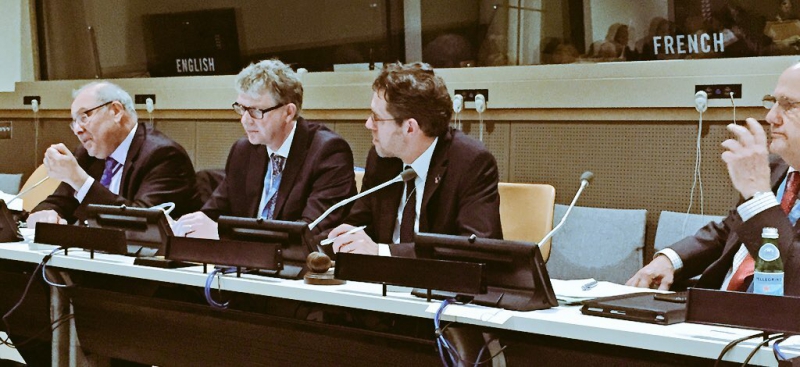UN torture mandate holders discuss why ratification matters
New York, 20 October – “No state is immune from the risk of torture and by ratifying the UNCAT a state demonstrates that it is dedicated to its effective prevention and prohibition.” – Juan Mendez, Special Rapporteur on Torture

Chair of the UN Committee against Torture, Claudio Grossman, Chair of the UN Sub-Committee on Prevention of Torture, Malcolm Evans, and Special Rapporteur on Torture, Juan Mendez provided on Tuesday 20 October their personal views on the benefits of UNCAT and OPCAT ratification at a CTI side event during the UN General Assembly’s 70th session.
According to Juan Mendez there were five main reasons why ratification matters:
- It demonstrates a commitment to international human rights law
- It strengthens national human rights legal frameworks
- The ratifying state will become part of the international community and benefit from the support of international and regional mechanisms
- Ratification must be meaningful
- Ratification is first step towards implementation
Mendez also reminded participants that “states are already bound to the obligations contained in the UNCAT because they are wholly reflective of customary international law, making it all the more essential that all states adhere to the Convention and its obligations.”
Claudio Grossman saw the CTI as “a way to bring the issue of torture prevention to the regions”. He added that “when a state does not join the Convention against Torture, it deprives itself from the community of states that have joined and from the international community to learn from experience and learn from good practises”. There was a general misperception among non-ratifying states that ratification could impair a state’s ability to fight crime. Grossman stressed in this regard that “ratification instead restrains illegal behaviours. When individuals see that the Rule of Law is respected, they have more respect for their state”.
From the perspective of Malcolm Evans, prevention should not be an afterthought: “The prohibition of torture is not to be subjected to torture and ill-treatment; prevention is therefore core to what should be done.” Evans stressed that OPCAT in this regard firmly emphasises what a state needs to do to address the issue of torture prevention.

